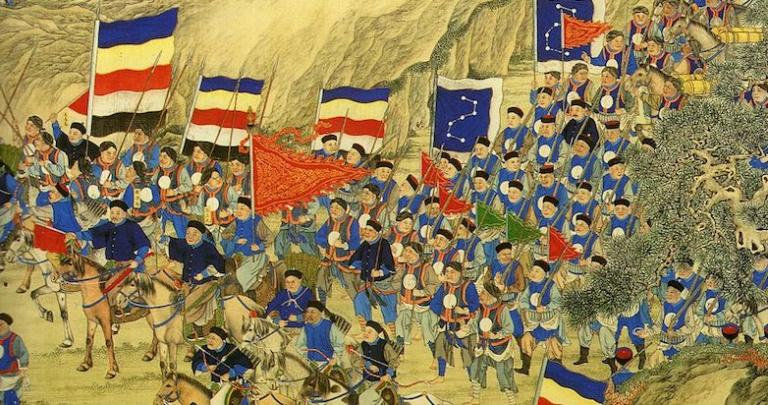
Everyone's a rebel
I got into a drunken argument with this French guy at a party a few months ago - mostly because he was pissing me off for all sorts of other reasons - about the French resistance. I have a problem with everyone-was-a-resister narratives. Sorry, but no - if indeed everyone was a silent, active resister and objected to what the bad powers-that-be were doing, how did the ‘bad guys’ of history get their work done? Either the organizations the bad guys built were so good that people went against their moral code to execute the work, people were morally indifferent to their work, or their morality helped gird the system but they were afraid to admit it.
Even when the Allies invaded Germany and apprehended top officials in the Nazi administration, many people claimed they were secretly working to undermine the regime. I get it, I too worked feverishly every day for 9 years for a 100-billion dollar corporation as a part of my plan to undermine the grip of capitalism, by bringing it to its natural contradictions. Wait till I tell the Communists lining up to shoot me when the revolution comes how long my bathroom breaks and how spicy my memes were.
Narratives about resistance and overthrowing an evil oppressor, painting ourselves as bold victims or fierce resisters strike me as too convenient. It strikes me as especially convenient for European powers and America in WWII, since many of them had ideologies based on the same science of race, early explicit financial support for the Nazis and now carry shame about the role of national heroes who sided with the Nazis against the Communists. The Nazis were not considered extreme in their views early on, since their plans for extermination only came to light after the war was over. Their rhetoric was considered acceptable and more over revolutionary in post-WWI Europe.
Anti-semitism in Europe was hardly a new affair. In Eastern Europe you had the pogroms. In Spain you have a town literally called “Kill Jews”. In France, persecution of Jewish people goes back 1000 years. Similarly for England. The Nazis are a convenient Jungian shadow projection to avoid having to deal with the fact that any country in Europe could have birthed a movement like the Nazis. And many still do!
Certainly, countries like France and the UK suffered during WWII, but nations are multifarious. Civilians who held no opinion on much of anything beyond their daily vittles took more of the brunt of the bombing campaigns than the abstract ‘ideology’ or ‘nation’ ever could. But that all the more underscores my belief that the war (like every war) was not one of clashing ideologies - of racial hierarchy against freedom and equality. France and the UK were running empires at that very moment, drawing soldiers and money from their holdings built on the very idea of racial hierarchy. The fight that France and the UK were involved in was one for survival, and perhaps there is nobility in that, but it is not some kind of philosophical pursuit of ideals that motivated the resistance effort. It does not deserve exemption from scrutiny. It does not deserve a special kind of applause. And it certainly does not, in my mind, relieve any institution from a burden of guilt.
This is my core problem with the focus on the resistance of those nations, or even the story of resistance within India against British rule. Without Indian soldiers firing on civilians in Beijing, the British, German and Russian soldiers wouldn’t have been able to commit the war crimes they did, particularly towards women. India made a token gesture by returning a temple bell a British general stole during the Rebellion in 1994. But this does little to address the overall concern - the institutional taint that remains. Today’s Indian and Pakistani army are direct descendants of the very same institution that the British founded (the Bangladeshi army has a different root) - has there been a reckoning about this? Given humanity’s base urge to think of ourselves and our tribe as good and someone else and their tribe as bad, victim narratives about our nation allow us to justify new horrors. After all, how do you think the Nazis won the support of Germans? Through a victim narrative, about how Jewish and non-German people in general were looting the German lands.
The more history I read, the more I am convinced that the world has always been kind of a mess. Power is never as powerful or as ubiquitous as you think, and far more cruel and vicious. Anyone who tries to portray themselves as having a clean history is lying to you, and even worse, lying to themselves. All our houses have a pox. No one is a fucking rebel. We have all been benefactors of a bloody inheritance and our goal should be to leave future generations with a cleaner conscience. But not through storytelling. Through reconciliation and holding our institutions accountable.
Those bold and heroic stories of partisans are fun, but they’re a trap. We have agency. We can fight injustice every day if we want and in fact, that’s a far more effective way to do it than to mount a resistance. History’s villains aren’t gone - they’re still there within all of our hearts and fighting them is heroic. It’s just that heroism doesn’t have to involve a gun and a sacrifice of your life.